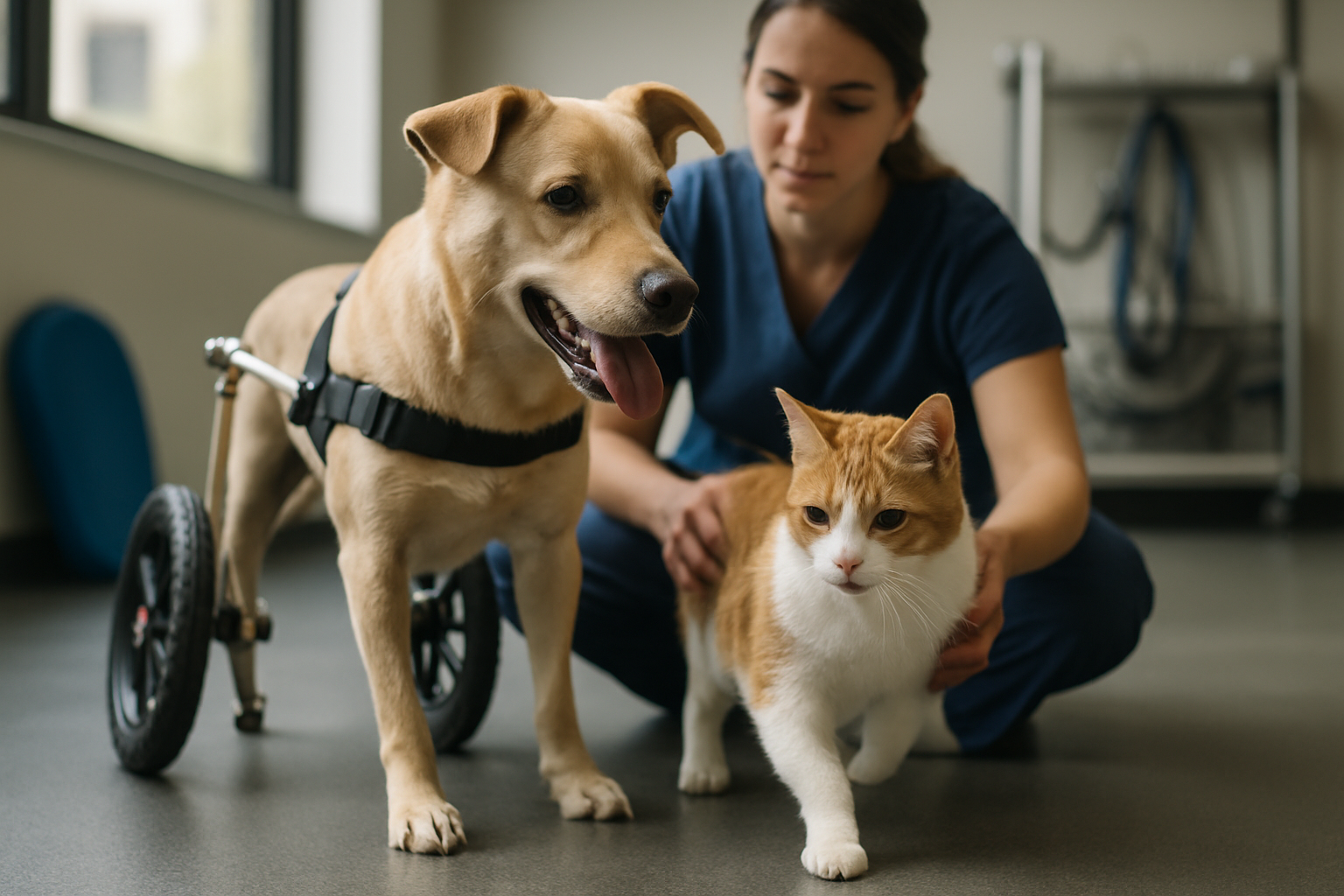Understanding Animal Healthcare Coverage Options in Spain
Pet ownership in Spain has grown significantly, with millions of households welcoming furry companions into their families. As veterinary costs continue to rise, many Spanish pet owners are exploring animal healthcare coverage options to protect both their pets and their finances. These insurance plans can provide peace of mind when unexpected medical emergencies arise, offering various levels of coverage from basic accident protection to comprehensive wellness care.

Understanding Pet Insurance Options
Spain’s pet insurance market offers diverse coverage plans designed to meet different needs and budgets. Most policies cover accidents, illnesses, and emergency treatments, while premium plans may include routine care such as vaccinations, dental cleanings, and annual check-ups. When evaluating options, pet owners should consider their animal’s age, breed-specific health risks, and their own financial situation.
Basic plans typically cover emergency veterinary visits, surgeries, and hospitalization costs. Mid-tier options often add prescription medications, diagnostic tests, and specialist consultations. Comprehensive policies may include preventive care, behavioral therapy, and alternative treatments like physiotherapy or acupuncture.
How Pet Coverage Works
Most Spanish pet insurance policies operate on a reimbursement model. Pet owners pay veterinary bills upfront and then submit claims for reimbursement according to their policy terms. Coverage percentages typically range from 70% to 90% of eligible expenses, with annual deductibles and maximum payout limits.
Waiting periods are standard, usually ranging from 14 to 30 days for illnesses and immediate coverage for accidents. Pre-existing conditions are generally excluded, making early enrollment beneficial. Some insurers offer direct payment to veterinary clinics, eliminating the need for upfront payments from pet owners.
Benefits of Pet Insurance Plans
Financial protection represents the primary advantage of pet insurance, helping owners avoid difficult decisions between their pet’s health and their budget. Emergency surgeries can cost thousands of euros, making insurance particularly valuable for expensive procedures like orthopedic surgery, cancer treatment, or emergency interventions.
Insurance also encourages regular veterinary care, as many policies include wellness benefits that make routine check-ups more affordable. This preventive approach can help detect health issues early, potentially reducing long-term treatment costs and improving pet health outcomes.
| Provider | Coverage Type | Monthly Cost Estimation |
|---|---|---|
| Mapfre | Basic accident coverage | €15-25 |
| AXA | Comprehensive illness/accident | €25-45 |
| Allianz | Premium with wellness | €35-60 |
| Santalucía | Mid-tier coverage | €20-35 |
| DKV | Basic to comprehensive options | €18-50 |
Prices, rates, or cost estimates mentioned in this article are based on the latest available information but may change over time. Independent research is advised before making financial decisions.
Choosing the Right Coverage Level
Selecting appropriate coverage requires careful consideration of several factors. Young, healthy pets may benefit from basic accident coverage, while older animals or breeds prone to genetic conditions might need comprehensive plans. Pet owners should review policy exclusions, particularly regarding hereditary conditions, dental care, and behavioral issues.
Deductible amounts and reimbursement percentages significantly impact out-of-pocket costs. Higher deductibles typically result in lower monthly premiums but increase immediate expenses during claims. Similarly, policies with 90% reimbursement rates cost more than those offering 70% coverage but provide greater financial protection.
Regulatory Considerations in Spain
Spanish pet insurance operates under general insurance regulations, with policies governed by standard consumer protection laws. Pet owners should verify that their chosen insurer is properly licensed and regulated by the Dirección General de Seguros y Fondos de Pensiones.
Policy terms must be clearly disclosed, including coverage limits, exclusions, and claim procedures. Spanish law requires insurers to provide detailed policy documents in Spanish, ensuring pet owners understand their coverage fully before purchasing.
The growing pet insurance market in Spain reflects changing attitudes toward animal healthcare and financial planning. As veterinary medicine advances and treatment options expand, insurance coverage becomes increasingly valuable for responsible pet ownership. While policies require monthly premiums, they can prevent significant financial strain during medical emergencies and encourage proactive healthcare management for beloved animal companions.




